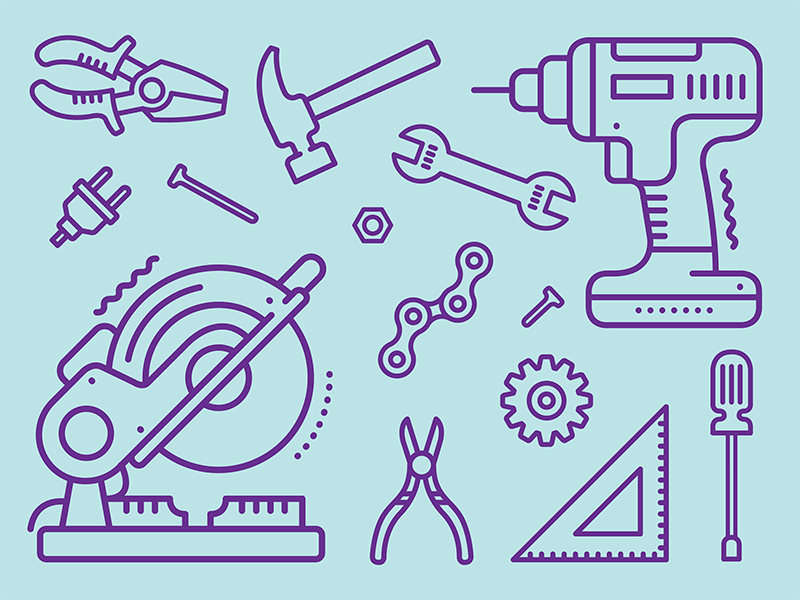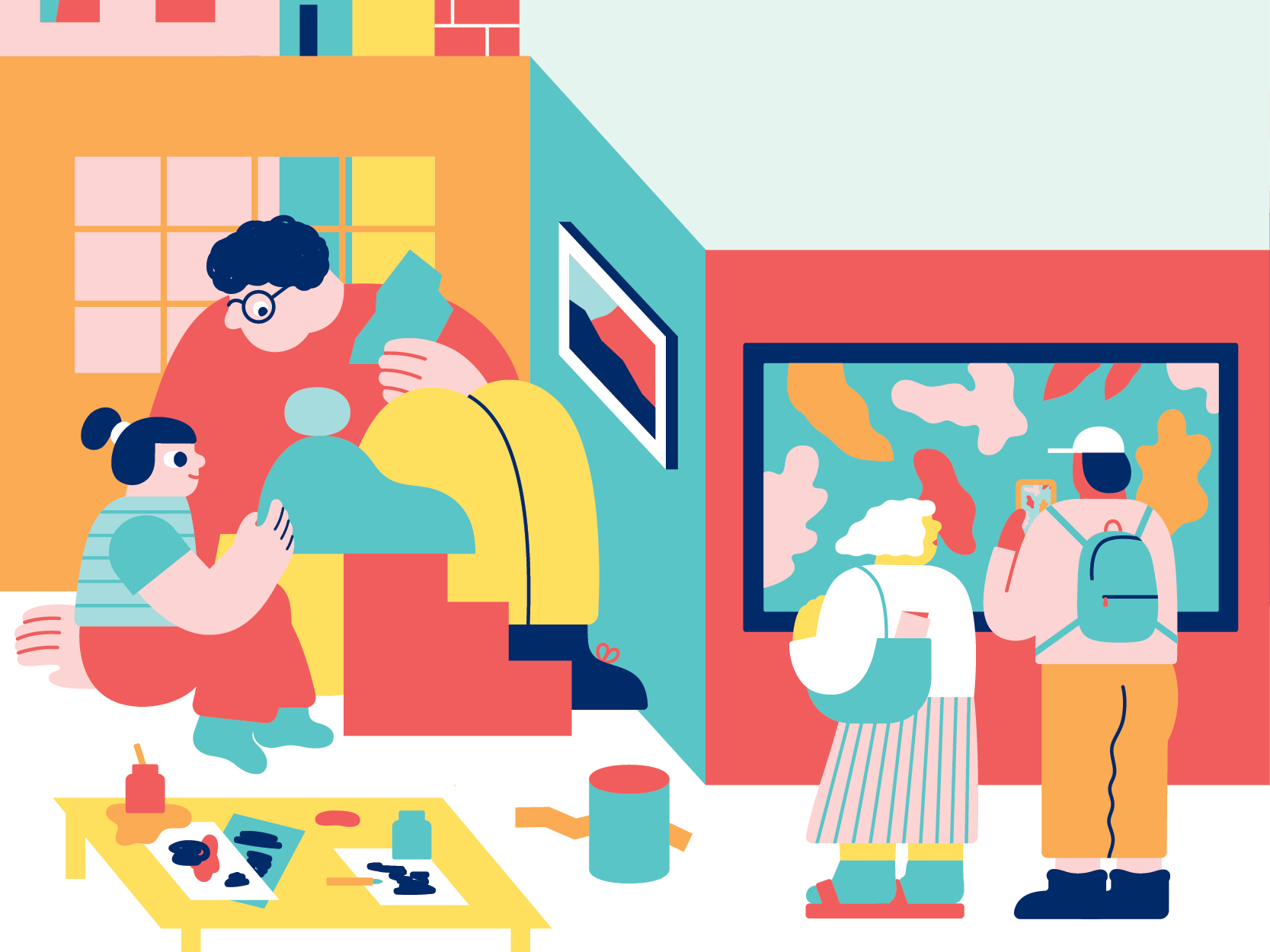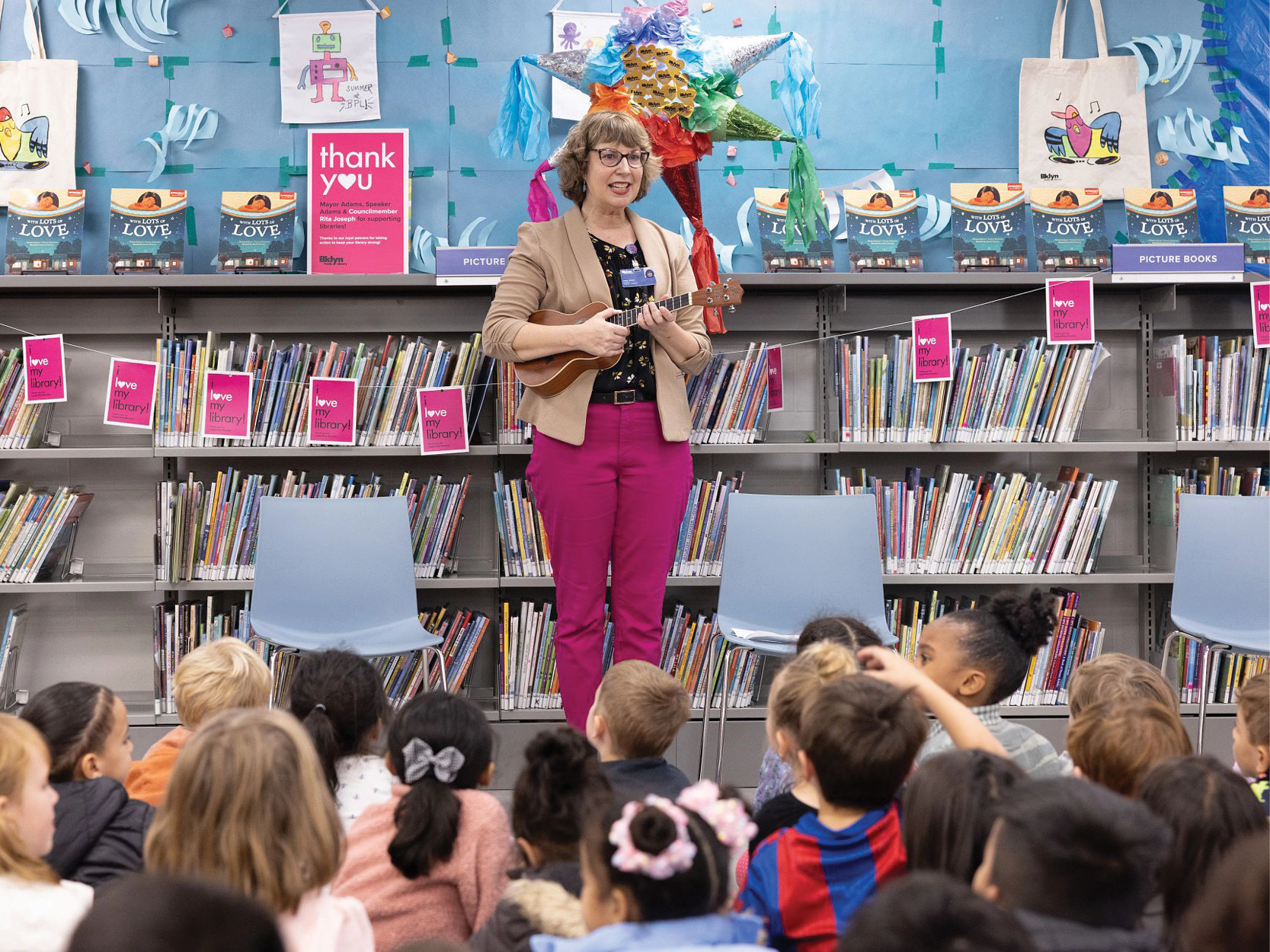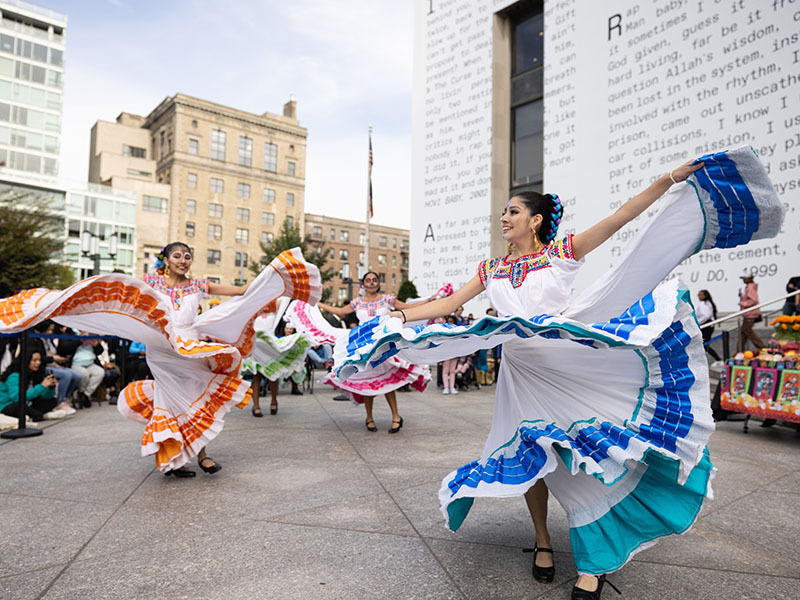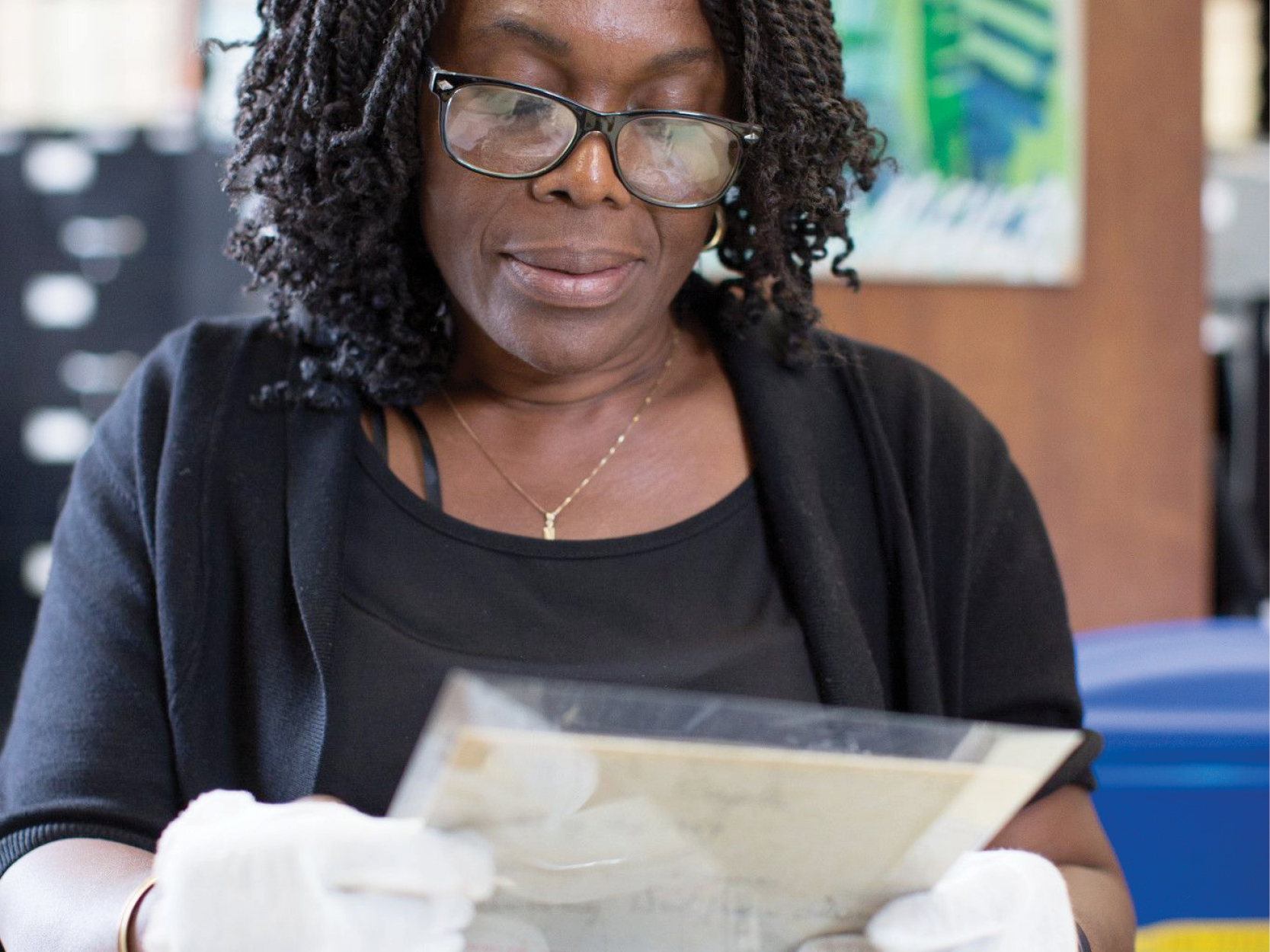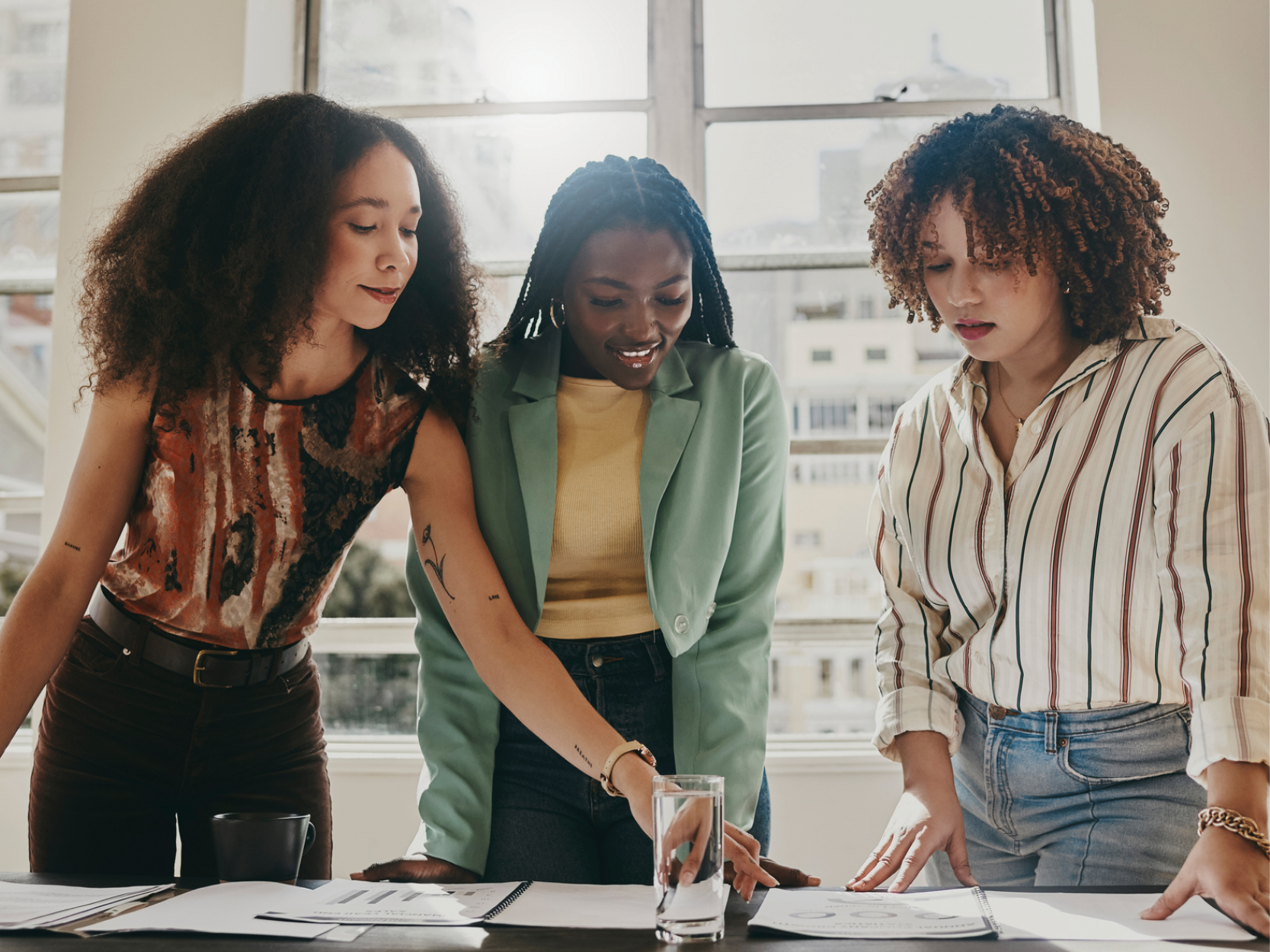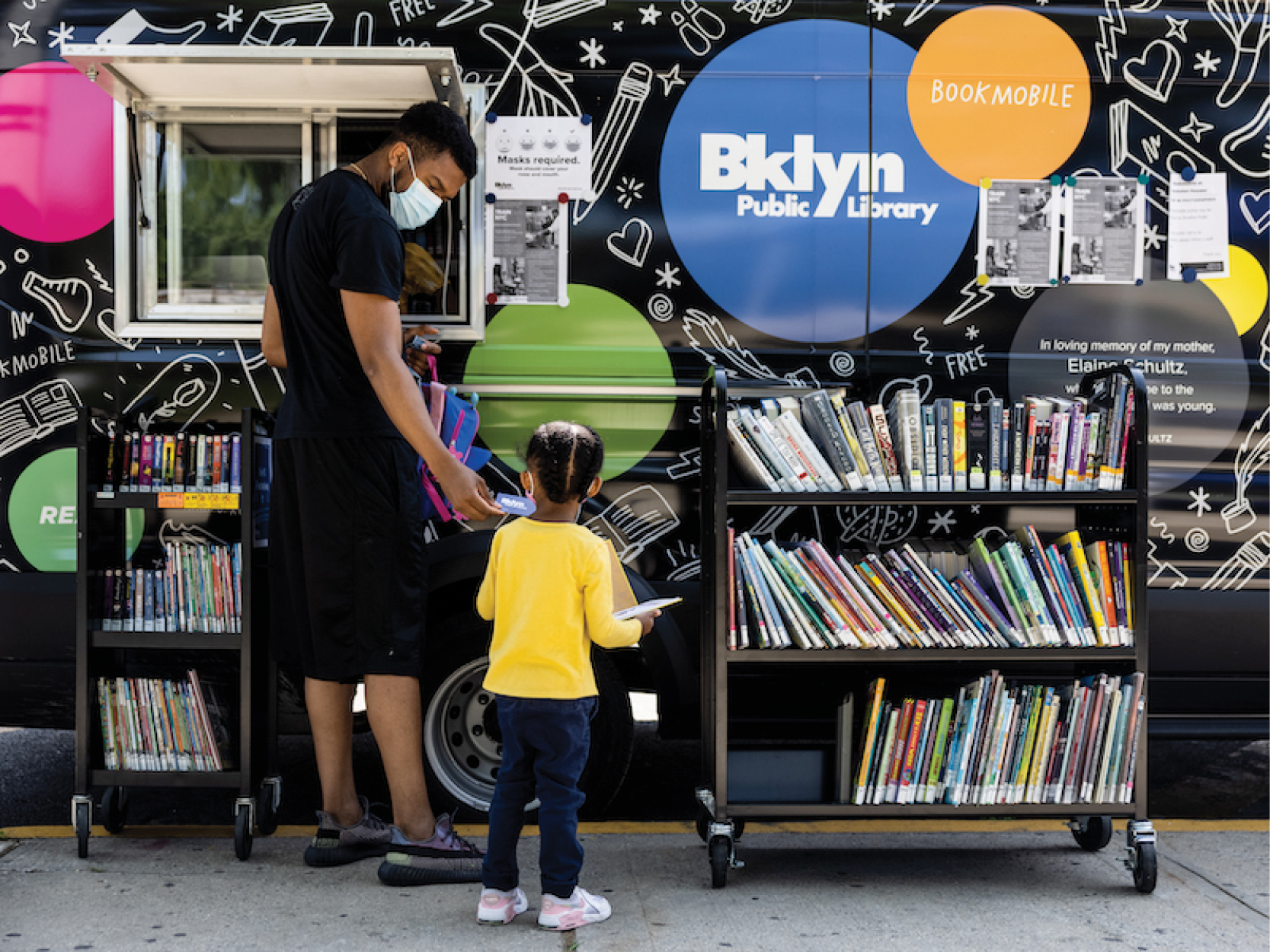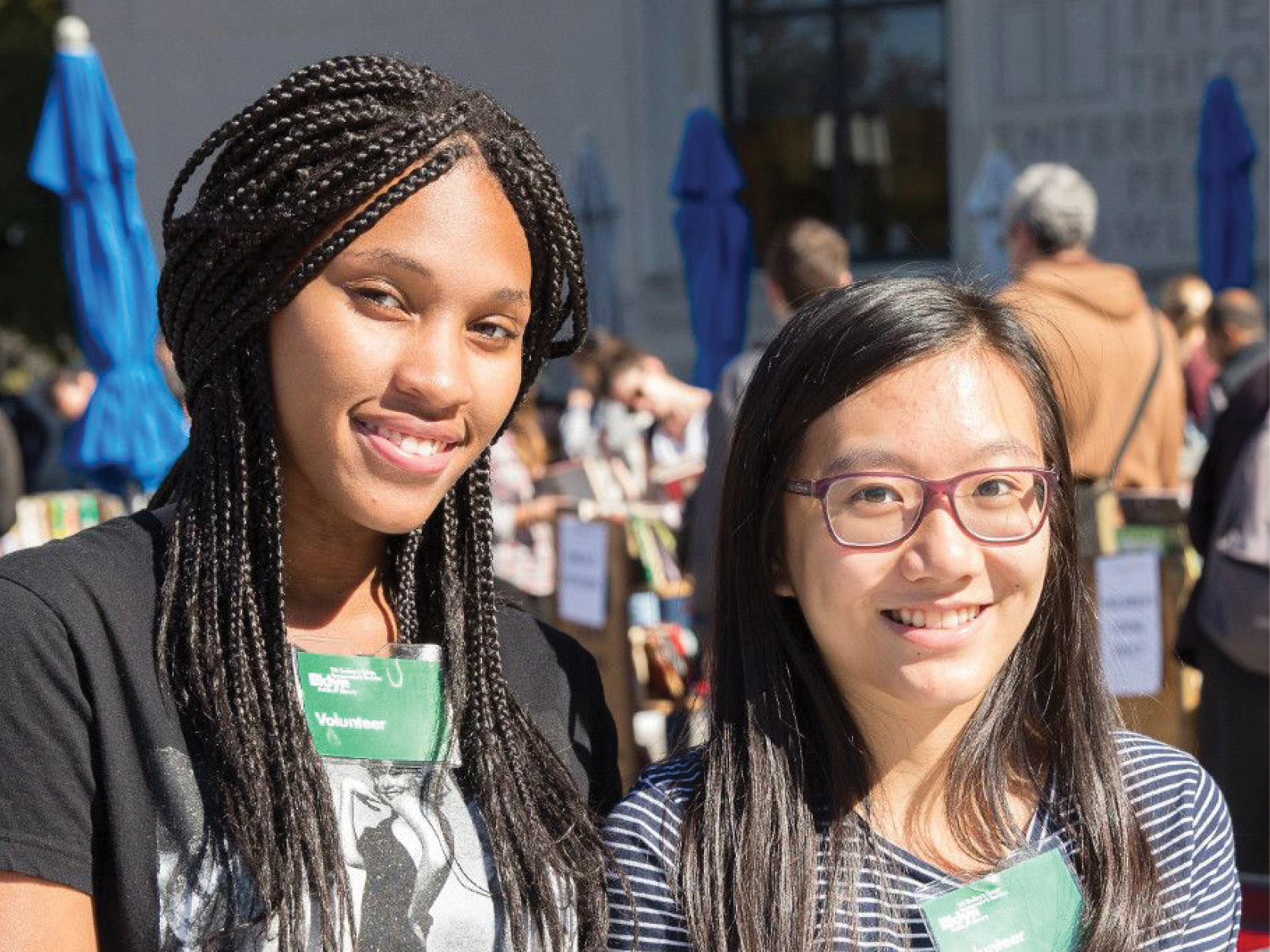Hear me out: A Vietnamese refugee opens a restaurant to keep her kids out of gangs, Brooklynites on their changing borough, a daughter seeks justice after her father's death from COVID-19, giving birth during a pandemic, the meaning of shelter for families experiencing homelessness, and the last lesbian bar in Brooklyn. These are all Brooklyn stories, created as part of BPL's first ever audio storytelling workshop.
Episode Transcript
*** Ad break *** If you're a fan of Borrowed, you might want to check out a podcast called The Big Shut-In from our friends at race car radio. It features long form conversations with all kinds of people, real people here in New York and all around the country, to hear how they're coping during the coronavirus crisis. It's unscripted and intimate, and it really gives you a view into people's lives as they navigate this truly difficult time. So you can find the big shot in that race car radio [dot] com and wherever you get your podcasts. ***
Adwoa Adusei Hey, Krissa.
Krissa Corbett Cavouras Hey, Adwoa
Adwoa Adusei We're back in your feed sooner than usual because we have more Brooklyn stories to share with you.
Krissa Corbett Cavouras That's right. This is the second part of a two part series featuring stories produced by Brooklynites during the library's first ever audio storytelling workshop series: Hear Me Out.
Adwoa Adusei Students each came into the workshop with a story to tell. And many of those stories had to do with living through the pandemic in Brooklyn, an event that is impacting all of us in different ways.
Krissa Corbett Cavouras We've collected these stories into that second episode. The first episode has five other incredible stories about Brooklyn, so be sure to check those out, too.
Adwoa Adusei So, without further ado, we bring you six more stories from the library's Hear Me Out program. I’m Adwoa Adusei.
Krissa Corbett Cavouras And I'm Krissa Corbett Cavouras. You're listening to Borrowed.
[Music]
Krissa Corbett Cavouras Our first story starts in 1979, when Jasmyne Roberts’s grandmother and her nine children escaped Vietnam shortly after the Vietnam War. It’s a story about how cooking saved her family once they settled in Brooklyn.
Pópo (translated from Cantonese into English) In Vietnam, I knew all of the basics, so when I came here, even though I didn’t have money, I could open a restaurant. It was mostly by trial and error: I took inspiration from other people’s meals and tried to copy them at home. Then I’d feed to everyone and get feedback. I’d cook, learn from it, cook again, and if people said it wasn’t good, I’d repeat the dish until it did taste good.
Jasmyne Roberts The restaurant kept the family afloat financially, but it also served another purpose. It kept her kids busy. Her sons, my uncles, were the main employees there. Everyday after school, my mother and her siblings came home to prep for the restaurant meals. That way, when Pópo and the older boys opened up shop in the mornings, all the dishes would be ready to go ... especially the chả lụa, the frequently-requested Vietnamese pork sausage. Its recipe was one that Pópo most closely guarded. Only family and trusted friends could help make the ham, and even then, only Pópo knew the whole process.
Aimy My job was to wrap it in Saran wrap, in foil, tie it with rubber bands, and banana leaves. Sometimes I wish I could go home and not have to do it ... but we had to do it, right? We didn't have money then, so everyone would come home and chip in to do their piece. The minute Friday comes, we sit there and we work all the way until eleven, twelve o’clock at night.
Jasmyne Roberts When everyone was busy and tired from preparing food, there was no time to hang around in the street after school. That’s how my grandmother reined in all nine of her kids: by making them essential to the business. But Mỹ Hương Restaurant in Chinatown had its fair share of gangs too. This was dangerous, but for different reasons. The people there weren’t there to recruit young kids. Here was the center of official gang activity, with each street and storefront carved up as the property of one gang or another. There were fights: on the streets, in the mall.
Pópo (translated into English) Someone loaned me money, and it was cheapest in Chinatown, so I opened the restaurant there. But I was very afraid of the gangs, and that my sons would join them.
Jasmyne Pópo eventually expanded her restaurant chain, but after a few years, she closed them all down. Everyone was too exhausted, and besides, the restaurants had served their purpose. Pópo had successfully supported her kids into adulthood.
Pópo (translated into English) Because my sons worked at the restaurant, they didn’t get into trouble or follow all the other boys in the streets. I opened the restaurant for my sons and daughters, not for myself.
[Sound of people talking]
Jasmyne This is what Thanksgiving sounds like in my family. With the pandemic, the gathering is smaller this year, but that doesn’t mean it’s any less loud. The twenty of us celebrate my cousin’s birthday, watch a movie, and dig into trays of noodles, soups, and jelly desserts. But this time, Pópo isn’t cooking. She’s tired, she says, let everyone else cook. My uncle makes Thai noodle soup, and my cousins and I make vegan Jamaican beef patties. The verdict?
Jasmyne to Richard Did you like it?
Richard Yeah, mhm.
Jasmyne That’s my Uncle Richard. He’s a chef. He makes a face at me.
Jasmyne to Richard But it was too dry.
Richard Yeah, the inside is dry, yeah. It is. It is.
Jasmyne I guess that means my cousins and I have some ways to go until we satisfy everyone. It’s relieving to know, then, that our cooking, which isn’t always so great, is a choice. On cold Friday evenings, when my cousins and I pull out the flour and preheat the oven, cooking and baking doesn’t come with the pressure of being our sole source of income. Mixing soupy tomatoes and sizzling onions together feels like a science experiment. It makes us feel powerful, like we have a joint responsibility to churn out something delicious. And with the European and American desserts we’ve added to our list of recipes, we feel like we’re adding onto our family’s culinary history. But mostly, as my cousin Dylan puts it:
Dylan Cooking kind of makes me feel like a grownup.
Jasmyne Thirty-seven years after Pópo opened Mỹ Hương Restaurant, food still means community. It means another few hours that everyone chooses to settle down on the floor of Pópo’s small apartment and dig into a rich meal. But what’s different now is that we can take the time to appreciate what food has done for this family. How it makes money, strengthens relationships, and most importantly... keeps our bellies full.
Adwoa Adusei That was Jasmyne Roberts, telling the story of her grandmother’s restaurant in Chinatown. You can hear the rest of it on our website.
The Chinatown ambiant noise is from footage taken in Chinatown in 1986 (via RailroadPacific). Other sounds in this episode came from EXCOG and Freesound.org.
Krissa Corbett Cavouras Sharing food with family has been one of the joys of 2020. Especially during a pandemic, when a lot of our favorite things about Brooklyn have changed.
Adwoa Adusei Our next story comes from Honeychild Coleman. She’s a musician, activist, and DJ, and her story captured the way that Brooklyn has changed. She talked to three residents of Williamsburg and Bed-Stuy: Criterion Thornton, Creature, and Tara DePorte.

in 2020 (six feet apart from her band mates).
(Image by Ed Marshall Photography NYC)
Honeychild Coleman As a resident of Brooklyn who was here for the first wave of COVID-19, What message do you have for our listeners on how to prepare for 2021?
Criterion Thornton I think just a daily routine that, you know, that involves some exercise and some downtime and, you know, cleaning a little bit. Just vigilance regarding everything, social distancing and mask wearing. But, yeah, I think it's important to stay active and vigilant, especially if you're still working.
Tara DePorte I think the biggest one that I've been thinking about is, let's think long term. It's so easy to want to give in to our short term needs and wishes of being together, of feeling freedom of, you know, I'm just like everyone else. I want to run around and breathe the air without a mask on and be around a bunch of people and dance and explore and have fun. But, I think we really need to keep our long term goals in mind and also keep the idea of we're really not just thinking about ourselves. We’re thinking about our community.
Creature For me, like, a walk to the city from where I live and it would be a good four miles. So, you know, that's for me, keeps my mind sane. And just like, you know, and sometimes I take the bus or take a train and I’m like, I should just walk. There’s too many people out here. So it's interesting, but the first couple of months was a little wacky, I think for a lot of us. We just kind of like really? We got to stay and nothing to do? And then, you know, things start kicking in and you start figuring out things and little, you know, glimmers of light come and you start realizing, hey, this is actually a reset. This does not--it's not over. It's like, you know what? Let me focus more on what I have to do. Let me, if I have to study, let me study some stuff. Let me, like, work on my health. I mean, you know, let me get in tune with people who I haven’t been in tune with. Let me get in tune with myself.
Krissa Corbett Cavouras That was an excerpt from Honeychild Coleman’s story, you can listen to the rest of it on our website.
Music on this episode comes from "Dandelion Soup" by 2MAD, "Rockaway Resilience" by Honeychild Coleman, and "Born To Win" by Rebelmatic. You can find Honeychild Coleman on Instagram @hccoleman, on Facebook @honeyhoneyhoneychild and on her website.
Adwoa Adusei For some residents of Brooklyn, the pandemic was more than a reset. It was a time of loss.
Krissa Corbett Cavouras One of our colleagues, BPL Outreach Supervisor Brenda Bentt-Peters, was a participant of Hear Me Out. She produced a story about a daughter's quest for justice after her father's death from COVID-19.
Brenda Bentt-Peters Billie Braithwaite Jones, a high school teacher here in Brooklyn, lost her father recently to COVID-19. Unlike others who accept the death of their loved ones as a tragic effect of the pandemic, Billie believes her father was murdered by the US government.
Billie Braithwaite Jones I mean, right after we went into lockdown mode, I think it was right after -- schools didn't actually, I think, stop until about March 25th. April 8th, my father was dead.
Brenda Bentt-Peters So, your father passed away due to COVID.
Billie Braithwaite Jones So, I'm going to just sort of, go off on a little tangent here. Because my father was killed by COVID, I personally don't say that my father passed away. I say that my father was killed, because my father and the two hundred thousand plus people who died, most of them, and I'm a firm believer also that my father probably would not have died had it not been for the careless, reckless disregard of human life by this administration. So, my father was killed on August 8th, excuse me, on April 8th.
Brenda Bentt-Peters She continued to explain how everything transpired during that time.

who died from COVID-19 in April 2020.
(Courtesy Brenda Bentt-Peters)
Billie Braithwaite Jones You know, the day that he was killed, declared dead, that was the day that saw the most deaths in New York City. So, at that point, a lot of doctors and hospitals weren't really keeping people, and they were sort of like trying to treat people from home. But until, you know, we realized that he was having shortness of breath and he could not stay home, that's when we got him to the hospital. And even that story is a horrific story in itself, because the ambulance -- we called an ambulance, they came, and before they even walked into the house, the woman said to me, I'm going to tell you right now, unless he's non-responsive, not breathing, or in critical — almost dead, we are not taking him to the hospital. The hospitals are not taking people. And they did not take him. They refused. I'm like, no, you are leaving here with my father. Let's get his doctor on the phone. And they were there for about 45 minutes to an hour with the doctor going back and forth because I was, you know, between my mom and myself, we were insisting, he needs medical attention. He needs, he has to have medical attention. They refused flat out, refused. Left without my father.
[Sound of clock ticking]
And at that point, we call a clinic at his hospital and they said, yes, you can bring him, if you can get him here, I think they said it like 11:45 or something. And it must have been like about ten or 10:30. And we called my aunt, she came over and we got my father, and that would be the last time I would see my father. So, it made me angry because here we are in a country with cutting edge technology and cutting edge medical treatments and all of that, and people were treated horribly during this pandemic. People who should have been in a hospital were not in a hospital. People who needed care did not get care. My father was killed for lack of medical attention in New York City, United States of America in 2020. Let that sink in.
Adwoa Adusei There's more to Brenda's story, and you can hear it on our website. We’ll read out the link at the end of the episode.
Krissa Corbett Cavouras And, 2020 was not just about loss and tragedy. For many, it was a year to welcome new life. That was the case for Elisabeth Donnelly.
Elisabeth Donnelly In March of this year, I needed a pregnancy test just as the COVID-19 pandemic was becoming a real threat in New York City. With the governor's order, the world was shut down. And I had to be extra careful as my husband, Stu, is a type one diabetic. We weren't leaving the house and we ordered a pregnancy test from a delivery service. When it came, I went to the bathroom. Minutes later, the stick had two lines. I was pregnant, pregnant in a pandemic. While I was dealing with the nausea of early pregnancy. Sarah-Grace Sweeney, a dula in Brooklyn, was assisting pregnant women. It was a job she had been doing since her first birth in April, 2019.
Sarah-Grace Sweeney Sometimes men asked me what I do and I say, dula, they're like, I don't understand. Then I’m like, I'm a coach, basically, a labor coach.
[Sound of baby crying]
You kind of know how it can unfold, all of the different ways that it can unfold and guide people through that, basically, walk them through the major, you know, signposts of their — whether it's induction, their Cesarian, if they want an unmedicated birth. And that can include all sorts of stuff. So it can include physical support, holding people's hair back while they puke, you know, it can be squeezing their hips, massaging their feet. Then it can be more of the emotional stuff or just kind of translating what has become a highly medical experience for a lot of people to a slightly less medical experience. No, it's kind of the most magical thing ever.
Elisabeth Donnelly But as coronavirus became the only thing in town, Sarah-Grace's job changed. Because of the pandemic, hospitals made new rules about who could accompany a pregnant woman to her birth. For a moment, some New York hospitals were requiring woman to give birth alone. Some would only let a woman have her partner in the room. So, Sarah-Grace transitioned to doing virtual births. She would just be a face on iPhone, ready to respond when people called, it became a totally different job.

(Courtesy Elisabeth Donnelly)
Sarah-Grace Sweeney You can't really advocate for someone when you're on their iPhone, like it's just really, really challenging.
Elisabeth Donnelly That's a big part of Sarah-Grace's job, communicating with hospital staff on behalf of the mother to be. One client's husband called her in a difficult moment. They said the mother was ready for active labor. Her body was ready to push, but the nurse had her panting, not pushing. And the doctor was nowhere to be found
Sarah-Grace Sweeney Because, like, if I had been there, I just would have been like, no, listen to your body, like that can cause extensive pelvic floor damage. The urinary catheter was still in place, like I believe it did cause issues for her postpartum, based on what we talked about in her visits. And like, there's just nothing I could do about it on FaceTime besides just kind of yell into the phone and hope that the nurse heard me, like, why is this happening? Why can't she push?
Elisabeth Donnelly For another birth, Sarah-Grace was the only support person in the room. The client's husband and son phoned in via FaceTime and Sarah-Grace set up a mount for the phone that looked like an arm that attached to the bed. She has a beautiful picture from the birth where the mother met her child for the first time. The mother is incandescent with joy, holding her child. Her husband and son loom over them, stuck inside the phone.
Sarah-Grace Sweeney Yeah, I mean, it was emotional, I think after the fact, especially, it was like, I really shouldn't be the only one here, like it should obviously be, you know, maybe in the midst of the labor, it's like great that I'm the only person — I'm there versus the husband. But after the fact, it's like, oh, of course, this shouldn't be me here doing this, and taking these pictures. You know, she would get so much more comfort and probably joy out of it being her husband.
Krissa Corbett Cavouras That was a story from Elisabeth Donnelly, a writer and journalist. Listen to the rest of her story on our website.
You can find Elisabeth Donnelly on Twitter @heydonnelly and on Instagram @heydonnelly.
Adwoa Adusei For others, the pandemic brought changes in living situations. Omar Etman brings us a peek into what it's like to live in one of New York City's shelters.
Omar Etman The COVID pandemic has left hundreds of thousands of New Yorkers out of work. Tenant advocates are anticipating a wave of evictions that will overwhelm an already overcrowded shelter system. In October, the average length of stay for families living in a New York City shelter was five hundred days, or a year and four months. For the last decade, a lack of affordable housing has sent thousands of families into shelter and made it increasingly difficult to get out. A system meant to be temporary is today already semi-permanent for many, and likely to become long term for many more. So, what is shelter when it's no longer temporary?
[Music]
In 2017, I ran a college readiness program at the Department of Homeless Services. The program has since ended, lost to cuts intended to refocus the agency's work on getting people out of shelter as quickly as possible. The thinking was that the most generous thing a shelter can provide its residents is a quick exit. College readiness was seen as enrichment. Important, but not essential for getting families into an apartment. I met Neraldi Muñoz through the program. She was a high school senior who had recently immigrated from the Dominican Republic. She loved softball and could make a session on student loans fun for everyone. In late 2018, Neraldi’s family moved out of a Brooklyn shelter into a NYCHA apartment in Manhattan.
Neraldi Muñoz Let me tell you, we really made it. We made our goal. We have NYCHA, we have an apartment in the best area we ever think. People ask me, you know, where do you live? In downtown Manhattan. They’re like, dang, you're rich. I'm like, I'm not really, but thank you. We made it. You just got to fight for it.
Omar Etman Neraldi, her four siblings and her parents were what the Department of Homeless Services call "long-term stayers," or people who lived in a shelter for two of the last four years. They lived in a single room in a Brooklyn shelter for three years.
Neraldi Muñoz It was like a little room that only fit one bed. There was a bathroom, like, so small, it can be two people in there. And then it was the kitchen and the living room together. So we had to have two bunk beds in the living room.
Omar Etman Almost as frustrating for her were all the rules. Inconveniences that, after years, amounted to major sources of frustration.
Neraldi Muñoz Nobody goes and nobody goes out. You got to be in their apartment by this time or you’re not getting in. You got to sign in and sign out in a book.
Omar Etman The problems Neraldi faced affect a lot of people in shelter. Cynthia English works for a watchdog group called the Coalition for the Homeless, where she sees families like Neraldi’s every day. Families that end up homeless because they can't make rent and then are further derailed by the challenges of life in shelter.
Cynthia English The longer you stay, the more you will get shifted around and traumatized by the system.
Omar Etman Cynthia knows the struggle. She was once a long-term stayer herself. Over the course of fifteen years, she lived in and out of shelter and on and off the street. She's 56 now and has lived in a stable home for a decade.
Cynthia English Part of getting through the really difficult challenges of being homeless is building back your self-esteem. Because I don't care who you are, nobody ends up homeless and still feels the same way about themselves. I don't call myself formerly homeless. I don't, because at the end of the day, it's a specter in my personal existence. It's a very reachable state of being, no matter how well I'm doing now. I don't know if I'll ever get over it. And I had a good experience my last go around, but I don't know if I will ever get over the mindset that I am a homeless New Yorker. Even though I'm not technically homeless.
Adwoa Adusei That story was produced by Omar Etman. There's more to his story, so be sure to listen to the rest of it on our website.
Krissa Corbett Cavouras And finally on Borrowed, a story from Taylor Cook. She talks about a community that she is missing during the pandemic: Ginger’s Bar in Park Slope. Taylor spoke to Sheila Frayne, the owner of Ginger’s Bar, which is one of only fifteen lesbian bars left in the United States.
Taylor Cook On the eve of its 20th anniversary, Ginger’s was forced to close as New York went into lockdown.
Sheila Frayne 2020 has been a complete disaster all across the board. And I mean personal, family, business, friends, people dying, just just sadness nonstop. I want it to be over. Of course, you know, we put in for the PPP loan and we never got that small business loan or whatever they were giving out on the first came out, you know? But anyhow, I'm sure some people benefited from it, which was good. But we didn't. You know, until we get a vaccine and it's safe for everybody, there's no point in trying to beat a dead horse because it's not going to work. You know, it was a great place and hope to be able to open it back up again.
Taylor Cook Yes, fingers crossed. Ginger's is absolutely my favorite bar.
Sheila Frayne Oh, it's my favorite too.

(Courtesy Taylor Cook)
Taylor Cook Ginger's means a lot to me. It's where I have my birthday party every year, where I went with my girlfriend on the night we started dating, where I like to dance with my friends. Ginger's and the few other surviving lesbian bars have long been some of the only spaces for lesbians and other queer and trans people can connect, hook up, meet each other and build community and safety without having to worry about the harassment we often face in straight bars.
Sheila Frayne I just always felt a nice vibe community and I always try to keep it. And every single week from the day open for twenty years, I always saged it. I always put good energy and hope to keep everybody safe. That's the little thing I would do, a little ritual every every few days. And it was like a community center, really, because we went through like 9/11 together. We survived Sandy. We, you know, anytime there was a horrible crisis, this is where a few people came to meet, you know,
Taylor Cook Sheila and the staff at Ginger's keep everyone safe.
Sheila Frayne You know, sometimes we get death threats. And, I just felt the need the last few years. Maybe I should get a bouncer on the door weekends because of, you know, that whole shooting in Florida, I started to feel a little unsafe with nobody on the door, you know. And you know through the years, we've never really had any trouble. We never really had any violence. It was just always a nice feeling.
Taylor Cook As lesbian bars rapidly closed, circuit parties and one off lesbian nightlife events have sprung up in their place. These sweaty late night dance parties, with their cover charges and young crowds, can't replace the stability of having permanent space, a place to sit and talk and meet people of all ages and build community.
Sheila Frayne I guess it's from where I grew up, from where I came from. You go to the pub in Ireland and you could have like Joe Soaks in a little corner who’s like ninety and then we could have young people dancing here. So young people mix with old people. Like I could go out my mother to the pub and have a great time because there’ll be young and old people, you know. So I'd like to provide that kind of space as well. I think that's important that we don't forget about our old people. And now that I’m getting old, too, you know, Jesus. Not to say that I’m old. But I'm not my 20s and 30s anymore, and that's for sure. Us older people, we did pave a path for the young people, you know what I mean? And that's why I still look at the generations before me, you know, some some of the older generations that are like, wow, they really made a difference for us. So, you know, I think it's important not to let that go.
Taylor Cook This is what we lose when we lose lesbian bars: a dedicated space for queer women and trans people, a place where we're always welcome. A place that is ours. The queer community is resilient, with or without our own bars. We will always carve out spaces for ourselves to be together and be safe and to celebrate. But I'm eagerly looking forward to the day I can return to Ginger's, cue up a song on the jukebox, play a game of pool and sip a beer in the backyard with friends and strangers.
[Music]
Taylor to Sheila Do you have a go-to song on the jukebox?
Sheila Frayne You know the song, "I'm coming out, I want the world to know… "
Taylor Cook Oh yes.
Sheila Frayne It's such a gay song. I mean, I've always known that any time it came on, whether they're young or old, you know, people were always happy or clapping or singing or, you know.
["I’m Coming Out" plays]
You can find Taylor Cook on Twitter @taylormcook7.
Adwoa Adusei You can listen to the rest of these incredible stories on our website: BKLYN Library [dot] org [slash] community [dash] content … or search for Hear Me Out on soundcloud. Hear Me Out was part of BKLYN Incubator, co-produced by Virginia Marshall and UnionDocs, and was generously supported with funding from The Charles H. Revson Foundation and Robin K. and Jay L. Lewis. Family Inc.
Krissa Corbett Cavouras The lead instructor and curriculum designer of the library’s “Hear Me Out” program was Stephanie Foo. Guest instructors included: Dan Rosato, Marissa Schneiderman, Sachar Mattias, Ann Heppermann and Brendan Baker.
Adwoa Adusei Borrowed is brought to you by Brooklyn Public Library and is hosted by me Adwoa Adusei and Krissa Corbett Cavouras. You can find a transcript of this episode at our website, B-K-L-Y-N Library [dot] org [slash] podcasts.
Krissa Corbett Cavouras Borrowed is produced by Virginia Marshall and written by Virginia Marshall and Adwoa Adusei, with help from Fritzi Bodenheimer, Jennifer Proffitt, Meryl Friedman, and Robin Lester Kenton. Our music composer is Billy Libby.
Adwoa Adusei Borrowed will be back in two weeks. Until then, keep telling each other stories.
